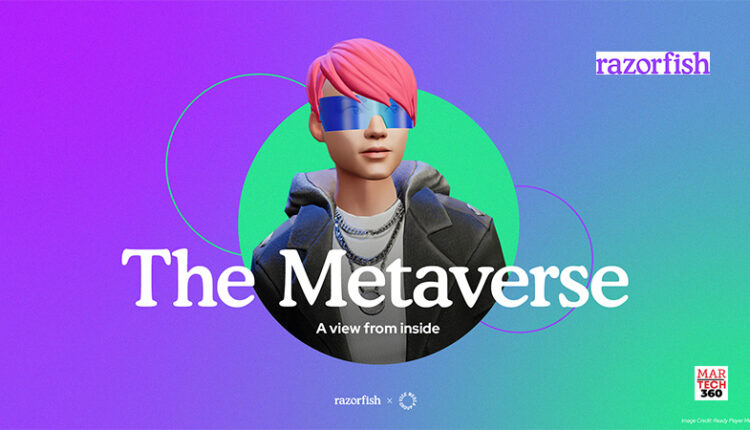Razorfish Study Finds 52% of Gen Z Gamers Feel More Like Themselves in the Metaverse than in Real Life
Razorfish and VICE Media Group released findings from new research that examines the metaverse’s impact on identity, social interactions, and commerce. The study, titled “The Metaverse: A View from Inside,” seeks to understand how Gen Z, in particular, blends experiences across virtual and offline worlds, and the opportunities for brands to build meaningful interactions in this new space.
Read More: MarTech 360 Interview With Chris Hickman, CSO, Keyfactor
According to survey responses, Gen Z gamers spend twice as much time hanging out with friends in the metaverse than they do in real life, with gamers spending 12.2 hours per week playing video games versus 6.6 hours hanging out with friends in-person. These gamers don’t only view their time in the metaverse as pure escapism, but also as an extension of real life: 52% of Gen Z gamers say they would like to experience making money in the metaverse, while 33% of them would like to experience building a career there.
Gen Z gamers purchase items in the metaverse the same way they do in real life. Over the next five years, 20% of Gen Z gamers’ “fun” budgets (i.e., money spent on entertainment, leisure, or recreation) will go to in-game purchases, with the average current spend being $50/year. Further, they welcome brands here: 33% of Gen Z gamers would like to see brands provide virtual stores for browsing and buying products in the metaverse, while 30% would like to see brands selling skins and apparel for their avatars.
“Today’s youth are coming into their identities both in real life and in the metaverse, using experiences across both worlds to build confidence and hone their self-expression,” said Nicolas Chidiac, brand strategy lead at Razorfish. “Gen Z gamers view the metaverse as a safe place to freely express themselves, experiment with identities, establish friendships, and ultimately create a world they want to live in. It’s important that brands don’t dismiss the metaverse as a passing fad, but view it as a paradigm-shifting trend that’s just getting started.”
Brands Will Lose a Key Demographic if They Ignore the Metaverse
The “metaverse” quickly arose as one of the early buzzwords of 2022. As marketers come to grips with understanding this new environment, Gen Z is already growing up with it; it isn’t foreign or futuristic to them – it is their reality, especially for gamers. In fact, 57% of Gen Z gamers feel they’re able to self-express more openly to others in a game than they do in real life. The metaverse impacts the way Gen Z gamers think, socialize, and consume every day.


Comments are closed.